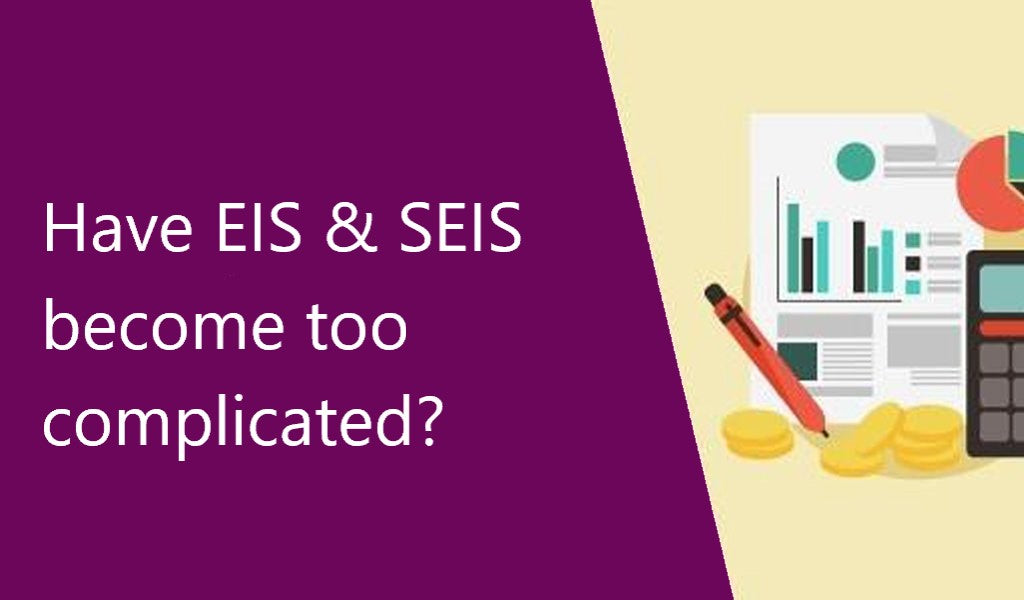
The Enterprise Investment Scheme (“EIS”) offers generous income tax and capital gains tax reliefs to investors in certain companies, with even more generous tax relief for the Seed Enterprise Investment Scheme (“SEIS”), where the investment is in a younger, very high-risk company.
Recent statistics show that EIS continues to be a popular method of attracting investors to back high-risk trading companies who are seeking funding. One of the main attractions is the tax relief for the investor based on the amount invested. With tax relief on contributions into pension schemes for high earners being capped, the continued take up in EIS and SEIS investments demonstrate that individuals are looking elsewhere for tax relief.
The tax benefits of EIS & SEIS can be summarised as follows:
- 30% income tax relief (50% for SEIS), the relief takes the form of a credit against an individual's personal tax liability. It is given at 30% (50% SEIS) of the sum invested subject to there being enough tax liability to absorb the relief.
- No capital gains tax on disposal of the qualifying shares where they have been held for more than three years from the date of issue (or from the date of commencement of trading, if later).
- If a loss arises on the disposal of EIS/SEIS shares then, subject to adjusting for the income tax relief previously claimed, that loss will be available to the investor. This relief can either be claimed as a capital loss or as a loss for income tax purposes.
- The gain from the disposal of any asset can be deferred against an EIS or SEIS share subscription (although see below re reinvestment relief for 50% of an asset gain under SEIS). The tax on any gain rolled over in this way only becomes due on disposal of the EIS shares or if the individual ceases to be UK resident within 3 years of issue of the shares.
- For an SEIS qualifying investment, if you reinvest gains from other non-SEIS investments into an SEIS eligible company, 50% of the capital gains tax on the original investments can be mitigated via an SEIS qualifying investment.
Over the last few years there have been a number of changes to these schemes and the eligibility for a qualifying company has become more complex, including the application process.
Since 2015, the following additional qualifying conditions are required to be met by the company seeking investment:
- A lifetime limit for the issuing company capping the maximum amount it can raise under any of the venture capital schemes (SEIS, EIS & Venture Capital Trust). This limit will be £12 million for most companies, but there will be an enhanced £20 million for ‘knowledge intensive’ companies, see below.
- EIS relief will not be available for share issues in companies which have been trading for more than seven years (ten for knowledge intensive companies), unless one of three exceptions can be met.
- Knowledge Intensive Companies are companies that are carrying out research, development or innovation at the time that they are issuing shares, which is
- developing intellectual property which will be the company’s main source of business within the next 10 years; or
- Have 20%+ of employees carrying out research for at least 3 years from the date of the investment, and these employees must be in a role that requires a relevant Master’s or higher degree.
- Funds raised can’t be used to fund the acquisition of an existing company or trade. Money received from the investment must be used to promote the growth and development of the business. It is now necessary to report how the funds will be used to grow and develop the business, increase employees etc.
In addition to the rules becoming more complex, there have been criticisms around the complexity of the application process, particularly for the smallest start-ups and there has been a sharp drop in advance assurance requests over the period, down 28% from 2,860 to 2,040 year on year.
Although it is not mandatory to seek advance assurance, most companies do submit advance requests to HMRC to get initial approval that the tax authority will treat the shares to be issued as satisfying the requirements of the various schemes. Changes to the rules from January 2018 onwards has affected applications, as HMRC will only provide an opinion where the application names the individual(s), fund manager(s) or other promoter(s) who are expected to make the investment. There doesn’t have to be an investment offer in place, but details of those who are interested, or in respect of crowdfunding, details of the platform being used to raise funds must be provided.
EIS and SEIS are very generous tax reliefs for the investor, and invaluable to a company seeking to grow, however it is a very complicated area. Harbour Key deal with companies seeking venture capital reliefs on a regular basis from seeking advance assurance to reporting a completed investment notification to HMRC, so that the investor receives their certificate to claim their tax relief.
If you would like to discuss EIS and SEIS either from a company seeking investment or an investor regarding your tax relief position, please do not hesitate to contact Harbour Key.
01452 713277



